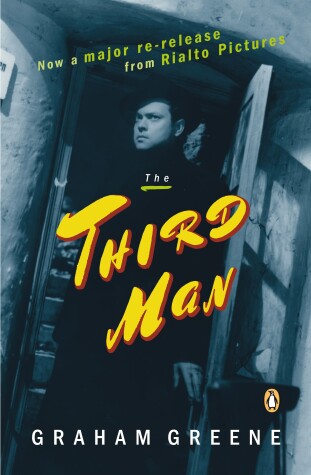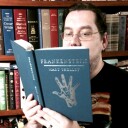
brokentune
Written on Sep 28, 2014
As part of my self-imposed Greene-land challenge, this is one of the two books that I have looked forward to least. The other, btw, is Greene's other cinematic "classic" Brighton Rock.
So, there I was starting The Third Man having made a huge pot of coffee in full expectation that slumber would befall me at anytime.
And what happens? Greene brings to life the dreariness of post-war Vienna much more effectively on page than the film ever could in moving images. Who'd have thought it?!
"I never knew Vienna between the wars, and I am too young to remember the old Vienna with its Strauss music and its bogus easy charm; to me it is simply a city of undignified ruins which turned that February into great glaciers of snow and ice. The Danube was a grey flat muddy river a long way off across the Second Bezirk , the Russian zone where the Prater lay smashed and desolate and full of weeds, only the Great Wheel revolving slowly over the foundations of merry-go-rounds like abandoned millstones, the rusting iron of smashed tanks which nobody had cleared away, the frost-nipped weeds where the snow was thin. I haven’t enough imagination to picture it as it had once been, any more than I can picture Sacher’s Hotel as other than a transit hotel for English officers or see the Kärntnerstrasse as a fashionable shopping street instead of a street which exists, most of it, only at eye level, repaired up to the first storey. A Russian soldier in a fur cap goes by with a rifle over his shoulder, a few tarts cluster round the American Information Office, and men in overcoats sip ersatz coffee in the windows of the Old Vienna."
The other aspect I enjoyed about The Third Man was that this wasn't so much of a thriller which was meant to be taken seriously anymore. Greene found his touch as a writer of political spoofs - only later to be surpassed of course by Our Man in Havanna.
"There is a lot of comedy in these situations if you are not directly concerned. You need a background of Central European terror, of a father who belonged to a losing side, of house -searches and disappearances, before the fear outweighs the comedy. The Russian, you see, refused to leave the room while Anna dressed: the Englishman refused to remain in the room: the American wouldn’t leave a girl unprotected with a Russian soldier, and the Frenchman – well, I think the Frenchman must have thought it was fun. Can’t you imagine the scene? The Russian was just doing his duty and watched the girl all the time, without a flicker of sexual interest; the American stood with his back chivalrously turned, but aware, I am sure, of every movement; the Frenchman smoked his cigarette and watched with detached amusement the reflection of the girl dressing in the mirror of the wardrobe; and the Englishman stood in the passage wondering what to do next."
Review originally posted on BookLikes: http://brokentune.booklikes.com/post/1009421/the-third-man

